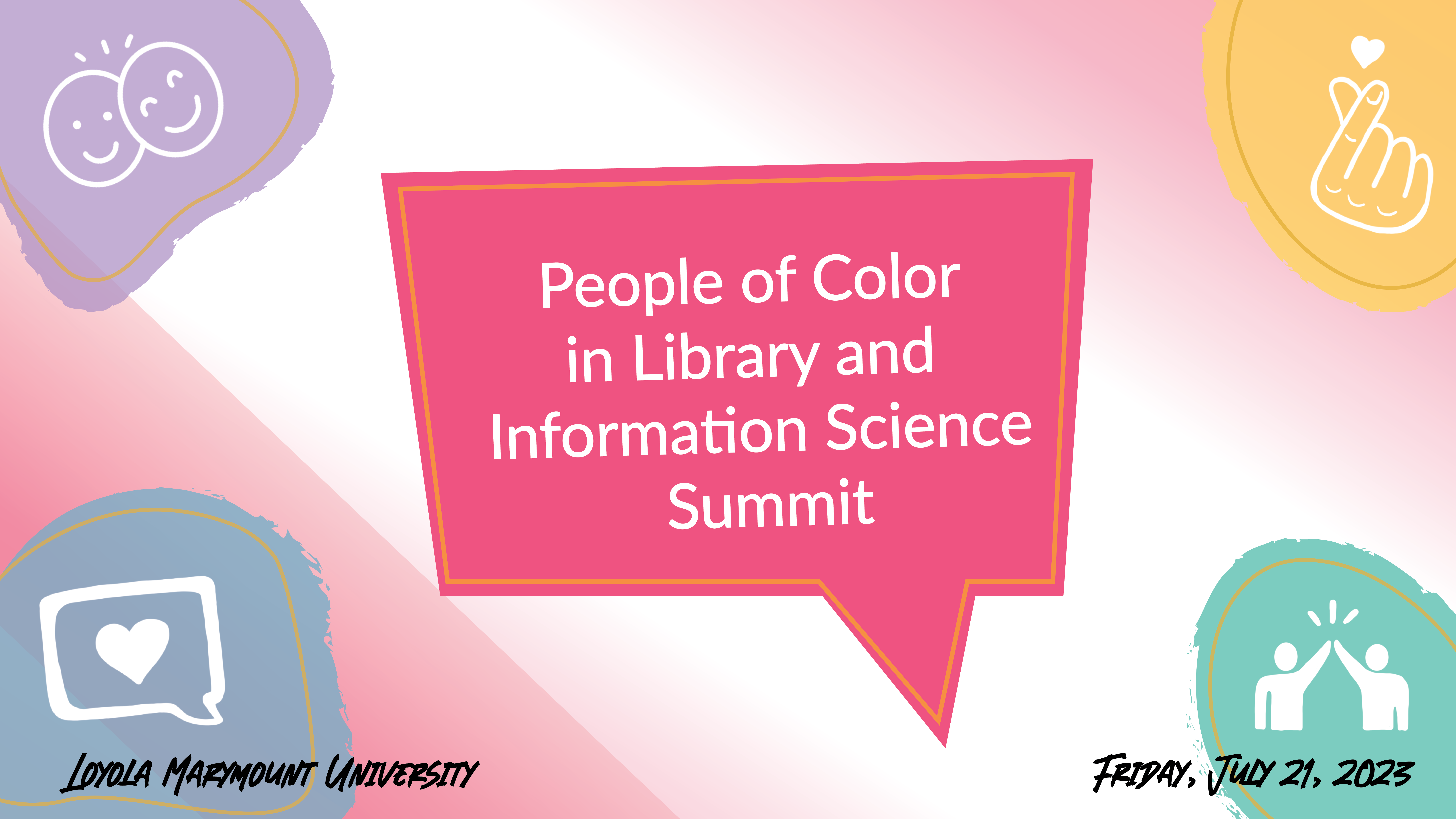Event Type
Lightning Talk
Location
Ahmanson Auditorium
Start Date
21-7-2023 2:25 PM
End Date
21-7-2023 3:25 PM
Description
Librarianship tends to be presented from an optimistic view, and although some of that optimism is true, the reality of becoming a librarian can be a form of cruel optimism. Dylan Burns and Hailley Fargo (2019) used Lauren Berlant’s (2011) cruel optimism to explore the emotional experiences involved in the promise of becoming a librarian, yet it is “…out of reach for nearly a third of LIS graduates” (Burns & Fargo, 2019). Transitioning to librarianship is a big step especially for those experiencing a mid-career transition. The time, cost(s), and emotional energy involved include going back to school, gaining experience in the field, the job search, and navigating a field that is nearly 86.7% white women (Rosa & Henke, 2017). There is an increasingly large cohort of students, many of whom are white women, enrolled in MLIS/MLS programs to become a librarian, yet the job opportunities do not meet the demand. Depending on an individual’s situation and institution(s) they work at and/or applying to, the experiences in becoming a librarian can vary and reflect the inequities in the field. Specifically, the same applies in an academic library setting. In my proposed presentation, I will discuss my experience as an Afro-Latine cis woman transitioning from a paraprofessional support staff to an academic librarian. Why did I choose to be a librarian? What steps did I take to learn about the field? What were the realities that I learned that altered the optimism I originally had of librarianship? What is my own vision as a librarian? I will discuss the importance of having a support network as I became and establishing myself as a librarian in a predominantly white space. Learners will understand and assess the realities of transitioning to librarianship and strategize accordingly.
Outcomes
Learners will understand and assess the realities of transitioning to librarianship and strategize accordingly.
Lightning Talk: The Cruel Optimism in Becoming a Librarian
Ahmanson Auditorium
Librarianship tends to be presented from an optimistic view, and although some of that optimism is true, the reality of becoming a librarian can be a form of cruel optimism. Dylan Burns and Hailley Fargo (2019) used Lauren Berlant’s (2011) cruel optimism to explore the emotional experiences involved in the promise of becoming a librarian, yet it is “…out of reach for nearly a third of LIS graduates” (Burns & Fargo, 2019). Transitioning to librarianship is a big step especially for those experiencing a mid-career transition. The time, cost(s), and emotional energy involved include going back to school, gaining experience in the field, the job search, and navigating a field that is nearly 86.7% white women (Rosa & Henke, 2017). There is an increasingly large cohort of students, many of whom are white women, enrolled in MLIS/MLS programs to become a librarian, yet the job opportunities do not meet the demand. Depending on an individual’s situation and institution(s) they work at and/or applying to, the experiences in becoming a librarian can vary and reflect the inequities in the field. Specifically, the same applies in an academic library setting. In my proposed presentation, I will discuss my experience as an Afro-Latine cis woman transitioning from a paraprofessional support staff to an academic librarian. Why did I choose to be a librarian? What steps did I take to learn about the field? What were the realities that I learned that altered the optimism I originally had of librarianship? What is my own vision as a librarian? I will discuss the importance of having a support network as I became and establishing myself as a librarian in a predominantly white space. Learners will understand and assess the realities of transitioning to librarianship and strategize accordingly.
Outcomes
Learners will understand and assess the realities of transitioning to librarianship and strategize accordingly.




